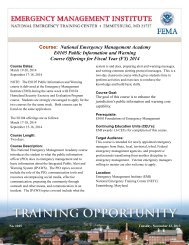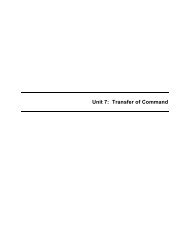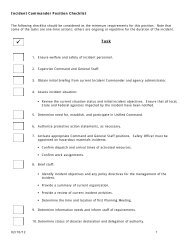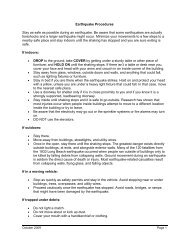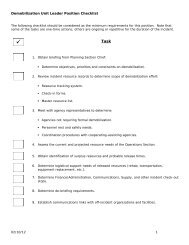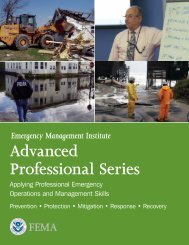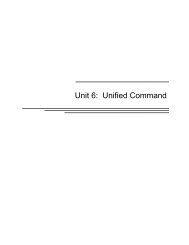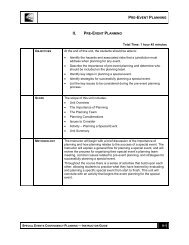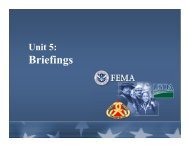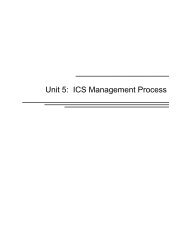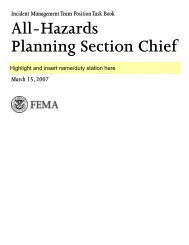enrollment for emi courses - Emergency Management Institute ...
enrollment for emi courses - Emergency Management Institute ...
enrollment for emi courses - Emergency Management Institute ...
You also want an ePaper? Increase the reach of your titles
YUMPU automatically turns print PDFs into web optimized ePapers that Google loves.
EmE r g gE E n nc cy y ma n na a g gE E m mE E n nt t In Ins st tI tI t u ut tE E • 2010-2011 • ca cat ta al l o g of co u r rs sE Es s<br />
<strong>Emergency</strong> management accreditation<br />
program (Emap) assessor training (E124)<br />
The training will prepare experienced emergency<br />
managers to serve as on-site assessors as part<br />
of the accreditation process. Training is open to<br />
experienced emergency managers who meet the<br />
assessor qualifications below. The training will cover<br />
EMAP standards, assessment procedures, and assessor<br />
responsibilities, and will conclude with an assessor<br />
examination. For more in<strong>for</strong>mation, please refer to<br />
http://www.emaponline.org/.<br />
Selection Criteria: Assessors must have the following<br />
qualifications, at a minimum:<br />
• Five years of experience in an emergency<br />
management position in State or local<br />
government emergency management;<br />
• Experience in at least one actual emergency in<br />
which the emergency plan was implemented<br />
and participation in an activated <strong>Emergency</strong><br />
Operations Center requiring implementation of<br />
operations response procedures;<br />
• Participated in at least one emergency operation,<br />
training, or exercise event in the last calendar year;<br />
• Be knowledgeable and up-to-date about the<br />
principles of comprehensive emergency<br />
management;<br />
• Must abide by the EMAP’s Code of Conduct;<br />
• Must be available <strong>for</strong> at least one assessment each<br />
year; and<br />
• Have no conflict of interest as regards to any aspect<br />
of EMAP that might prevent objective review and<br />
assessment of a candidate program. Must be able<br />
and willing to serve as a neutral observer.<br />
Course Length: 2 days<br />
CEUs: 1.2<br />
37<br />
recovery from Disaster: the local<br />
government role (E210)<br />
This resident course is designed <strong>for</strong> local disaster<br />
recovery teams consisting of emergency managers,<br />
city/county administrators, public works directors,<br />
building inspectors, and community planners. The<br />
course focuses on the roles and responsibilities of<br />
each team member, and provides guidance on<br />
developing a local disaster recovery plan. Best practices<br />
in disaster recovery are summarized in a CD-ROM<br />
toolkit included in the course materials. Participants<br />
are given the opportunity to develop an outline of<br />
their own recovery plan during the course.<br />
Selection Criteria: Local government emergency<br />
managers, building officials, community planners,<br />
city or county administrators, and public works<br />
directors. State disaster recovery personnel who<br />
work directly with local governments in disasters<br />
are eligible to attend the course.<br />
Course Length: 4 days<br />
CEUs: 2.5<br />
FEd E r A L Em E r g E N C y mA N A g E m E N T Ag E N C y<br />
rEsIDEnt cOursEs—<br />
prEparEDnEss &<br />
tEcHnOlOgy



